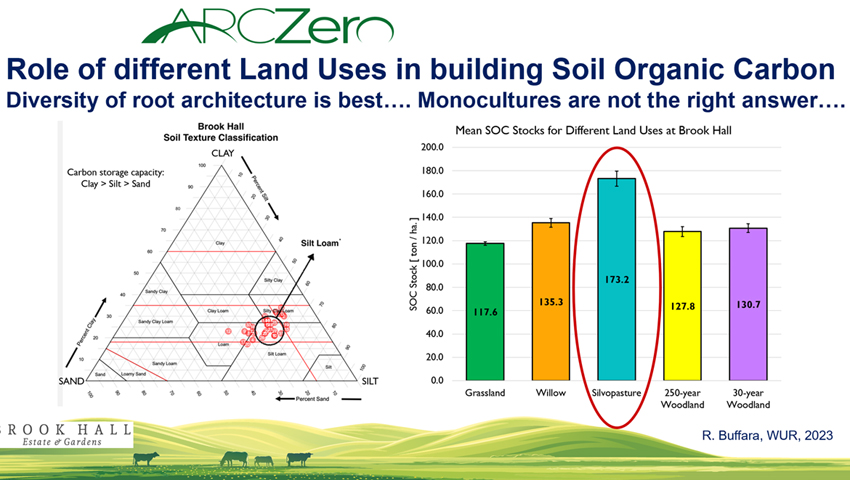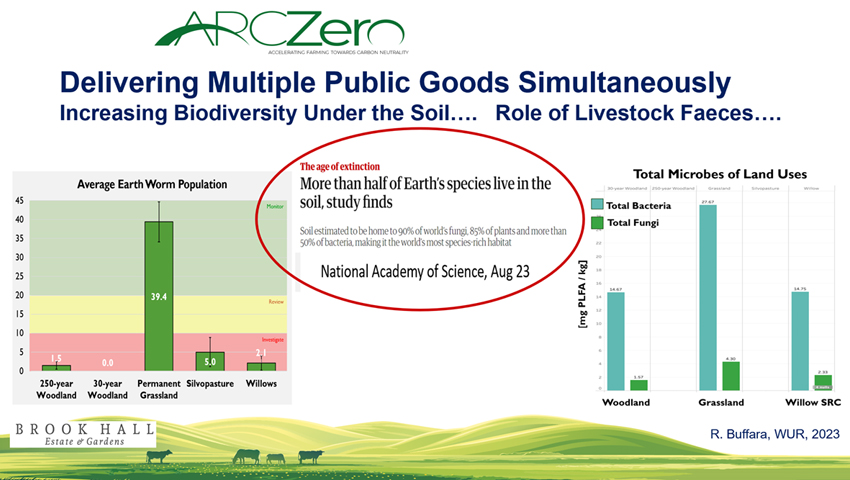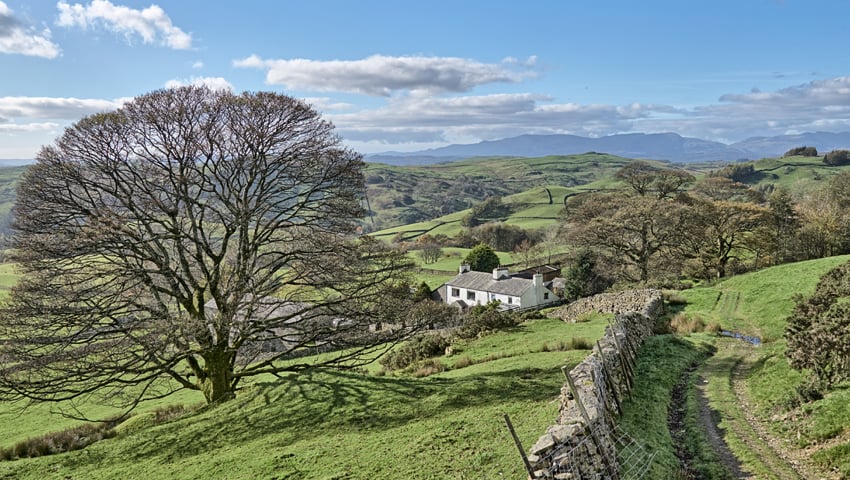Arc Zero Chair, John Gilliland, shared his experience of the role of soil in circular agriculture at the British Cattle Breeders’ Club conference this week.
He explained how the ARC Zero farmers delivered multiple public goods from their farm businesses, which were all interconnected, with soil and its health being the most pivotal asset.
Gilliland explained that if you can’t measure the soil, you would never be able to manage it. Hence, the very first action, after ARC Zero’s formation, was to baseline all seven members’ farms, in particular their soil, its fertility and its soil organic carbon stocks.
John’s own farm was selected for further analysis of its soil health, due to the presence of five historically different and distinct land uses. Earth worm populations, soil visual assessments, soil respiration rates and levels of bacterial and fungal communities were assessed and compared, with the help of Wageningen University & Research student, Ricardo Buffara.
The conclusion of this initial investigation on this one farm, was that a land use which has diversity at its core, with grazing animals eating this diversity and inoculating the soil microbiome through the returned faeces, gave the richest soil biology and highest soil carbon stocks.
In relation to scalability, Gilliland explained that following discussion with Arc Zero the Northern Ireland Executive had invested £45m into a Soil Nutrient Health Scheme, which is measuring the soil in every field across the whole of Northern Ireland over four years. He said that this had been well received by farmers in Northern Ireland with 92% of farmers applying in the first half of Northern Ireland selected for testing.
Last year, at ARC Zero’s conference in June, the group shared their findings from its original three-year EIP study.
This showed that when farmers are given precise information about their own farm, they make positive changes and actively work towards reducing their GHG emissions and increasing their carbon stocks.
The study also showed that when farms’ carbon positions are calculated on their net carbon position, offsetting emissions against carbon sequestration, most farms are much better off, with some already beyond net zero.
Gilliland said, “We want to continue to prove to society that if you give farmers a chance, if you unshackle them and you empower them, they will deliver what society wants – as long as society recognises that they also need to make a living.”
Watch a video of the Arc Zero June conference here


